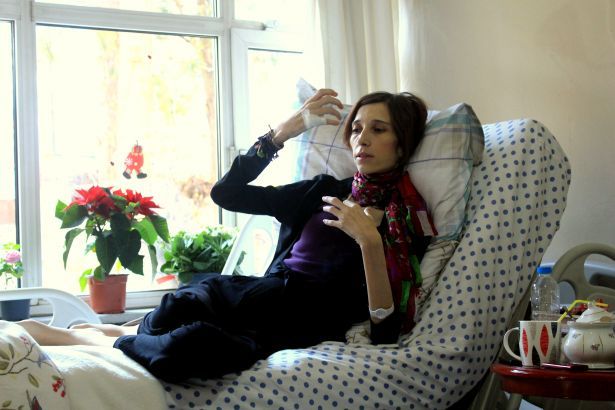Hunger-striking educators' resistance goes on

Academic Nuriye Gülmen is on 400th day on her protest, which started in front of Human Rights Monument in Ankara. She has been on hunger strike for 280 days to get her job back and was kept in prison for 193 days.
Nuriye Gülmen and primary school teacher Semih Özakça, have been on hunger strike over their sacking by government decree under the state of emergency imposed after last year's attempted overthrow of Turkish President Recep Tayyip Erdoğan.
Gülmen, who was released from prison on December 1, answered the questions of soL news.
'I FELT A TREMENDOUS JOY…'
Responding the question regarding her feelings when she heard the release decision, Nuriye Gülmen says, "I was so happy to hear the decision; I felt a tremendous joy…People welcomed me so beautiful when I came to my house from the prison."
Stating that the release decision of the court is the success of our people who are in solidarity with our struggle, Gülmen noted, "There were serious attack and oppression to me in prison. The government condemned me, but it had to release me at the same time. This is the success of people who have always stood with our struggle. I am so grateful to the people supporting this case and to the lawyers who endeavoured to refute witness acknowledgements."
'LETTERS KEPT ME ALIVE IN PRISON'
Responding the question regarding the heavy circumstances in prison, Gülmen stated, "Sincan prison in Ankara is a prison-based entirely on isolation of prisoners. It is called high-security prison. It’s some kind of F-type prisons [a cell-based system accompanied by an isolation regime], but they have officially no 'F.' Women stay in these three-person cells. I was also kept there as a political prisoner."
Saying that investment in prisons has the highest priority in Turkey, Gülmen told that "Prisons in Turkey are really full to overflowing. When I was put in prison, there was no room for three-person cells. So, I was kept in prison wards where people sentenced to aggravated life imprisonment have stayed. I generally stayed with two prisoners, but sometimes this number might increase to 6, 7 or 8."
Stating that solidarity letters were so precious for her, Gülmen said, "One of the most important things that I managed to resist against isolation regime in prison was the letters coming from every corner of the country and the globe. I was looking forward to reading these letters in prison."



